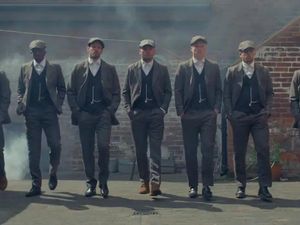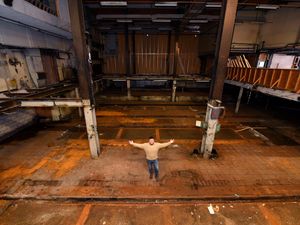Silent vigil outside Wolverhampton court highlights growing concerns around rights of juries
Are the centuries old rights of juries at risk? A group of protesters think so and have spent a morning outside a court risking arrest in a day of action.
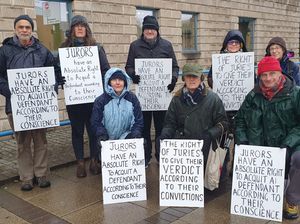
The group from Defend Our Juries spent an hour outside Wolverhampton Crown Court in a silent vigil, holding up signs highlighting the centuries’ old right of all jurors in British courtrooms to acquit a defendant according to their conscience, irrespective of the directions of the judge.
The action was part of a day of national protest, with similar actions happening at more than 50 courts around England and Wales happening during the week.
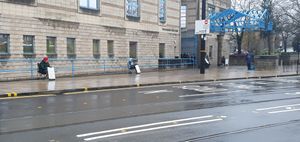
The Defend Our Juries have said the campaign began after a wave of repression in the courts that has seen defendants banned from explaining to the jury why they did what they did.
The group said this also included people being sent to prison for trying to explain their actions to the jury and others being told not to use the words ‘climate change’ and ‘fuel poverty’ and defendants had also been banned from explaining the principle of ‘jury equity’ to jurors.
Richard Painter from Birmingham was one of the protestors at Wolverhampton Crown Court and said he felt the government was trying to erase a right for jurors.
He said: "There is a sign in the Old Bailey that explains that juries should be allowed to follow their conscience.
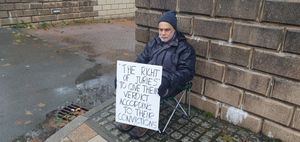
"It is a famous part of British legal history based on a case that is taught to children in schools today.
"I am holding a similar sign outside Wolverhampton Crown Court this morning because our government is trying to erase that absolute right of all jurors.
"The reason we have juries is because we trust our peers to make the right decisions, they are selected at random and have innate good sense.
"Famous examples of this include the case of Clive Ponting, the Ministry of Defence civil servant who became a whistleblower over the Falklands war and was sensationally acquitted by a jury; or, more recently, the jury that acquitted nine climate activists for breaking the windows of HSBC bank.
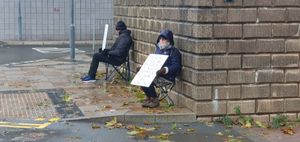
"We either put our trust in juries, or we end up with trial by judges - a system which is open to abuse and political pressure."
Kris Welch had come along to Wolverhampton to support the group and said they were there to uphold the right of juries and the right of people to have a fair trial.
She said: "In order for juries to act on their conscience, they need to understand why a defendant has done the actions that they did and this whole campaign comes on the back of a trial in 1670 of two Quaker preachers who the judge insisted were guilty, but the jury refused to find them guilty.
"That is what is enshrined in our law, this right to jury equity, but there have been some trials in London of defendants on trial for their climate actions, protesting against the new oil and gas licences that the government has been bringing in.
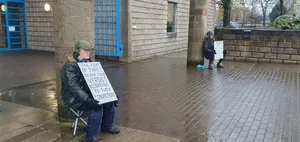
"In those instances, there are some judges who have ruled that the defendants are not allowed to say why they did their actions and, in fact, some of them have been imprisoned for simply saying climate change or fuel poverty in court.
"It is a growing issue because if juries are being silenced in this way or not given all the facts in this trial, that could go anywhere and is actually taking away a very basic right that we all really cherish to a fair trial."
By displaying their signs, the group said they could face arrest and imprisonment and sited two incidents involving protesters in London.
In September, the Solicitor General announced he would prosecute 68-year retired social worker, Trudi Warner, for contempt of court, for holding a similar sign outside Inner London Crown Court in March. In October, two young women were arrested by the Met police for doing the same thing.
To find out more about the Defend Our Juries campaign, go to defendourjuries.org


